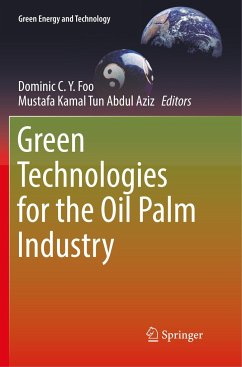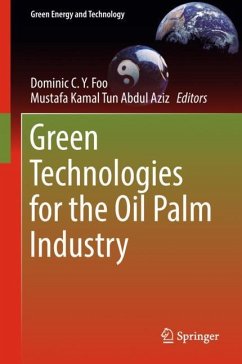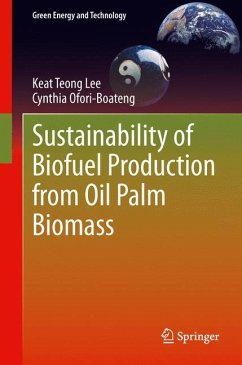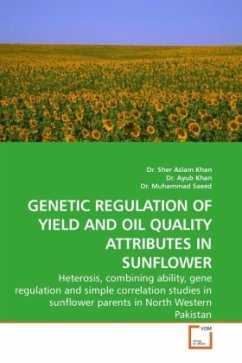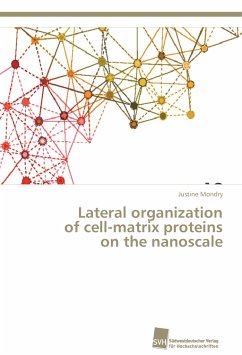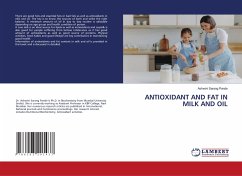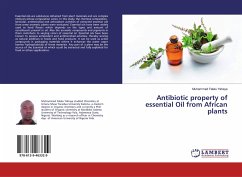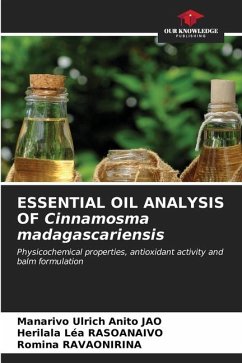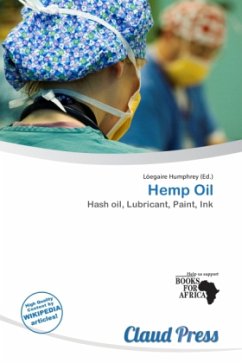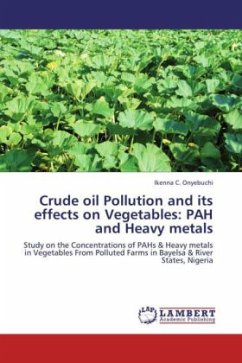
Processing Oil Palm Empty Fruit Bunches
Fast Pyrolysis Technology and Water Washing Pre-treatment
Versandkostenfrei!
Versandfertig in 6-10 Tagen
45,99 €
inkl. MwSt.

PAYBACK Punkte
23 °P sammeln!
The pyrolysis process is an advanced conversiontechnology that has the ability to produce moreuseful and valuable pyrolysis liquids in 65-75% yieldon dry feed from a wide variety of waste and biomassstreams. The oil palm industry in Malaysia produceswastes in large quantities of empty fruit bunch [EFB]after shell and fibre, thus the presence of these oilpalm wastes has created a major disposal problem. There are two primary objectives discussed in thisbook. The first objective is to determine the fastpyrolysis conditions required to maximise thepyrolysis liquid yield from the EFB waste. Thesec...
The pyrolysis process is an advanced conversion
technology that has the ability to produce more
useful and valuable pyrolysis liquids in 65-75% yield
on dry feed from a wide variety of waste and biomass
streams. The oil palm industry in Malaysia produces
wastes in large quantities of empty fruit bunch [EFB]
after shell and fibre, thus the presence of these oil
palm wastes has created a major disposal problem.
There are two primary objectives discussed in this
book. The first objective is to determine the fast
pyrolysis conditions required to maximise the
pyrolysis liquid yield from the EFB waste. The
second objective is to improve the quality and
quantity of pyrolysis liquid by water washing
pre-treatment of the EFB prior to pyrolysis.
Pre-treatment technique by water washing has been
devised with particular emphasis on the removal of
ash, which is required to modify the pyrolysis
reaction sufficiently to produce homogenous bio-oil.
The water washing experiments were designed with the
objective to gain a better understanding of the basic
factors impacting water washing of EFB that will
provide a basis for subsequent techno-economic
optimisation.
technology that has the ability to produce more
useful and valuable pyrolysis liquids in 65-75% yield
on dry feed from a wide variety of waste and biomass
streams. The oil palm industry in Malaysia produces
wastes in large quantities of empty fruit bunch [EFB]
after shell and fibre, thus the presence of these oil
palm wastes has created a major disposal problem.
There are two primary objectives discussed in this
book. The first objective is to determine the fast
pyrolysis conditions required to maximise the
pyrolysis liquid yield from the EFB waste. The
second objective is to improve the quality and
quantity of pyrolysis liquid by water washing
pre-treatment of the EFB prior to pyrolysis.
Pre-treatment technique by water washing has been
devised with particular emphasis on the removal of
ash, which is required to modify the pyrolysis
reaction sufficiently to produce homogenous bio-oil.
The water washing experiments were designed with the
objective to gain a better understanding of the basic
factors impacting water washing of EFB that will
provide a basis for subsequent techno-economic
optimisation.



